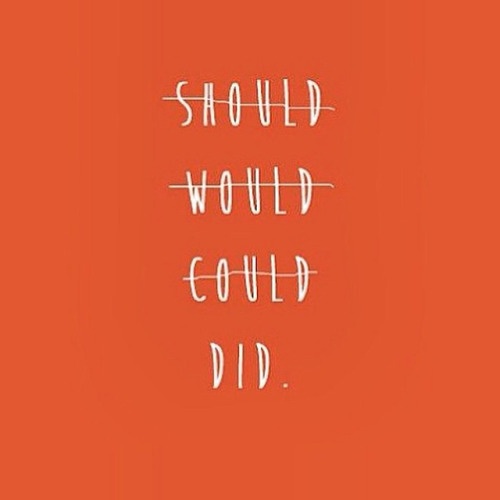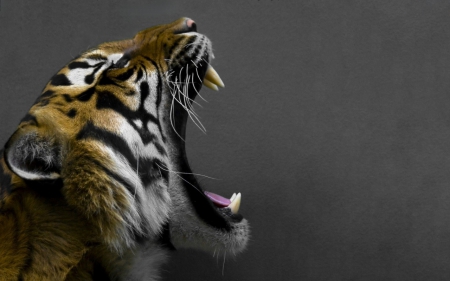Month: March 2015
How the music industry could change the world
Musician and Cambridge graduate George The Poet writes a heartfelt plea on using his music to reach millions and spread his message.
People often ask me why I’m not more vocal about the fact that I studied at Cambridge. The answer relates to the very thing I studied there: sociology -the exploration of social structures and how people relate to them. Although structures are made by humans, they have the power to influence human behaviour. For that reason, I see no need to labour the point about my academic background, as that particular institute is influential beyond my general PR repertoire. When I received my letter of acceptance, I knew there were things I would no longer have to explain, as many people would allow Cambridge to shape their understanding of me. See, this world is full of humans, but the thoughts and activities of these humans occur within structures that give things context. Without context, there is no meaning. That’s why a lot of people reacted to my signing to a major record label; it put my poetry into context. To have gone from poor-quality online content to High Street Kensington was a significant step — whether in the right direction or not was a matter of debate. Well, it was for the pundits. For me, it was a no-brainer: I had a message, which needed a platform. Having studied the structure of the music industry, I reasoned that I stood to gain more than I stood to lose by aligning myself with the machine, as long as I was clear on my definition of “success”. For every critic who saw this as a compromise there would be many more who would access my words outside of YouTube. So when people ask why I’m not more vocal about Cambridge, I tell them I’m as vocal about it as I am about Island Records — structures speak louder than words.
Speaking of structures, the fast-approaching general election has brought to my attention something blindingly obvious: politics is a lot like the music industry. Both are structures committed to ownership of the future, in their respective fields. In order to secure the future, people in these structures have to do a lot of promising and haggling around perhaps the most confounding aspect of human life: emotion. “This next album will blow your mind!”or it just won’t, I have literally no way of knowing. “It’s time to give the people what they want!”because the people want another complicated story about what you meant to do and why the previous people in your position made it impossible for you to achieve. The biggest challenge faced by any structure founded on the coordination of emotions is that times change, and when that happens, people change. It becomes increasingly difficult to make an impression as people start “getting over”the way things were, and simply move on. Growing up in this world of over-sell and under-delivery, I had always evaded that emotional engagement for one reason: I was invisible. To an extent, we are all invisible — expendable units in a much larger game of numbers — but what I mean is that my whole identity had little to no exposure in public life. My perspective, my network, my journey through different social strata… all these things were overlooked in the mainstream, casting my reality into a realm called “social exclusion”. Over time, I realised everyone feels excluded at some point, but to varying degrees: some people have physical and mental conditions that are underreported; others have important but uncommon experiences that go widely unrecognised. Sure, people out there were over-selling and under-delivering, but at least they were in the game -some of us didn’t even get to play! This was an issue of representation.
The more I studied sociology, the less sense this issue made to me. It seemed logical that representation went hand in hand with engagement, leading to success. I couldn’t understand what could be gained from alienating people, until it hit me: it’s not always the case that people are alienated from structures; sometimes the structures are alienated from the people. This explains the decline of the very genre that made me who I am — grime. The grime scene was an energetic outburst of invisible kids like me, who, under the guidance of pioneers such as Wiley, spearheaded what is described as the “democratisation of music production”in my community. Everyone had access to a home studio, and everyone had lyrics. Adolescents were organising themselves around the purpose of representation, making music that spoke to their reality. Although there was commercial potential here, the agendas of structures outside the community, such as the music industry and the police force, stifled the genre. This is where representation can be a bitch. The lack of influential representatives from our community meant that the suppression of our beloved art form was a covert assassination attempt that went largely unreported. Nevertheless, what the subjects of grime achieved in less than ten years was phenomenal, and it gave me an idea.
In my search for representation, I explored different forms of black music. Growing up in northwest London placed me in the heart of the Jamaican diaspora, so dancehall music was a key influence. I noticed the similarities and contrasts between the urban Jamaican experience depicted in much of the genre and the inner city London experience articulated in grime. Analysis aside, though, it was all sick music that I needed on my phone, whether or not I could relate. This taught me that entertainment was all about the presentation of ideas. So between 2006 and 2010, through my journey from grime to poetry, I practised forming my ideas, and making them presentable. This gained the interest of the entertainment industry, of which I had been wary for a long time. I embraced this interest, because I calculated that it could add value to my ideas. Between 2011 and 2012, my advancement in entertainment influenced two of my final year module choices at university: “Media, Society and Culture” and “The Political Economy of Capitalism”. On studying these subjects, I resolved to secure a record deal and test out a new theory: I believed that music would perform better — both inside and outside the markets — if it had a social outcome.
In the same way that the political sphere systemically alienates young voters by not accommodating for their needs, so too can the entertainment industry write itself out of relevance by failing to engage the consumer on a deeper level. Numbers don’t lie: the significance of the artist, and consequently the song, in consumers’lives is fast receding and the solution I propose is an economic one: increase stakeholder value. Give everyone involved a reason to want more. A social outcome isn’t necessarily a song around a campfire, it’s simply an extension of the music’s relevance. This could stem from its subject matter, its production value, or simply the personal interests of the artist who created it. When songs are released, things happen: remixes, shows, merchandise, memes, Vines — these are all social events. They can and should be maximised to give the music a lifetime beyond the radio. This way, you salvage that thing that is so often lost in big structures attempting to coordinate emotion: engagement. Although I’m describing this in hard economic terms, it’s actually all good. The only requirement for this strategy is that artists put some thought into what they’re saying.
By signing my record deal, I accepted the responsibility of representation. This was because I had only ever written poetry for the purpose of addressing the problems I saw. If I could identify where the power lay, I would be able to develop a strategy towards the desired outcome. So I considered the various power dynamics at play, and I concluded that my performance in the industry depended on people’s reaction to my music — therefore, the power lay with people. “Power of the people” is the literal translation of the Greek word “d?”mokratía”, ie “democracy”. As an elected representative, I felt my first move should reassure my constituents that progress was being made. For this reason, I created my first EP, The Chicken & the Egg, from a brief that tackled various aspects of representation: social exclusion as experienced in my community; cultural integrity of my musical style; and the value of contemporary poetry as an art form worthy of investment and development. The positive reception of the EP was a triumph in representation. I have since held shows and seminars on it in nine different cities.
Culture — and the music industry specifically — will soon supersede politics as the accepted platform for representation among underrepresented groups, if it hasn’t already done so. I entered entertainment because I wanted to broadcast messages of change. My strategy was to learn the entertainment space with a view to engineering my desired future. I learned that entertainment occurs both inside and outside of markets: inside a market, it can be capitalised for financial gain; outside a market, entertainment can be used to stimulate discussion and act as a form of therapy.
Weird things that happened at the Tidal launch
Yesterday, The Roc Nation mogul officially announced the launch of TIDAL, the first-ever artist-owned global music entertainment platform, during a star-studded press conference in New York on Monday. The world’s most famous musicians like Jay Z, Beyonce, Rihanna, Kanye West, Nicki Minaj & Usher united to launch Tidal. Each is considered a founding member and has an equity stake in the streaming company. They all said #TidalForAll and it was really strange – here’s a look back at the weirdest scenes of the day.
Full article at Dazed & Confused
“EVERYTHING YOU DO DOESN’T
NEED PRAISE.
IF YOU’RE AWARE OF
YOUR INTENTION,
THE GLORY IS ALREADY YOURS.
THE CONSTANT NEED FOR
ACKNOWLEDGEMENT AND
APPROVAL WILL DIVERT
YOUR PURPOSE”.
– Be inspired
Trends You Can Blame On Pharrell
Pharrell Williams, the singer, producer, fashion designer and Voice coach, will be accepting the Fashion Icon Award at the CFDA Fashion Awards on June 1. The honor, which was bestowed upon Rihanna last year, is being given to Pharrell, because, “If cool was a person, it would be Pharrell, not just for his looks and sense of style but for his kindness and openness,” said Diane Von Furstenburg, president of the CFDA.
But not only is the former Teddy Riley protégé a fashion icon, he is also a trendsetter. See which trends you can blame on Pharrell on www.hiphopwired.com
RITA ORA ON FASHION
I don’t think you can make a fashion mistake. I think you can go through an experience where you didn’t feel comfortable. But I don’t think there’s ever anything wrong with people not really liking how you dress. Sometimes it’s a fail to people, but to you it might be a success. I have worn things in my life, that people are looking at me and thinking, what are you doing. But you know, it kind of got me here today—it’s who wears it, that’s really what matters.
From: www.noisey.vice.com












